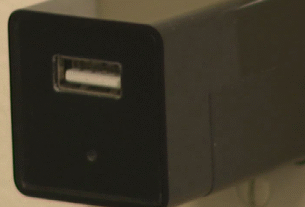My tearful daughter brought her soaking backpack home from preschool. When I unzipped it, the stench of urine hit me. Her teacher had dismissed it as “an accident” and sent her home without so much as a call.
Furious, I demanded a meeting. The next morning, the director slid a folder across the table. Inside were photographs of Isla, my four-year-old, playing outside with other kids, her pants clearly wet.
“Why are you showing me this?” I asked, forcing my voice steady.
“We document accidents like these for liability,” the director explained. “According to Miss Jenkins, your daughter didn’t tell anyone until she went home.”
I clenched my jaw. That didn’t add up. Isla was not the type to stay silent if she needed help—she was sassy, bold, and curious.
“So she wet herself and no one noticed for over an hour?” I pressed.
“That’s what we’re being told,” the director murmured, avoiding my eyes.
Miss Jenkins sat stiffly in the corner, arms crossed. I repeated what Isla had told me: that she cried and begged for help.
Miss Jenkins sighed. “She mentioned it right before outdoor play. I told her to wait a few minutes. I didn’t know she couldn’t hold it.”
I bit down my anger. “And you sent her home soaked in urine?”
“You didn’t have a change of clothes in her cubby,” she replied, defensive.
I turned to the director. “Why didn’t anyone call me? I would’ve left work immediately.”
Silence.
Then I noticed something odd. In one photo, Isla wore a plain white shirt—not the unicorn tee she had on when I dropped her off. And when I picked her up, she was back in that unicorn tee.
“Wait,” I said slowly. “You changed her shirt but not her pants?”
Miss Jenkins blanched.
“Miss Jenkins, could you step outside for a moment?” the director whispered.
When she left, the director leaned forward. “I shouldn’t say this, but…this isn’t the first complaint. Parents have said she’s cold and impatient. We monitored her. This may warrant further investigation.”
It wasn’t enough. My child had been humiliated, dismissed, and sent home reeking of neglect.
That evening, I shared what happened on a local parents’ Facebook group. Within hours, my inbox filled with stories: a boy sent home with a busted lip, a girl shamed for an accident, children too frightened to return. Many named Miss Jenkins.
I forwarded everything to the director.
Days later, I got the call: “Miss Jenkins has been placed on leave. An internal probe is underway. Thank you for speaking up.”
But I didn’t feel triumphant. Isla had become clingy. At drop-off, she trembled and begged me not to leave. Eventually, I worked from home to keep her with me.
Then another message arrived—from Tanisha, whose son had been in Jenkins’ class last year. “If you really want answers,” she wrote, “talk to Miss Ava, the assistant teacher who quit last month.”
I remembered Ava. Isla adored her.
I reached out, unsure if she’d respond. She did.
We met at a café. She looked young and worn-out, eyes tired but kind.
“I loved those kids,” she said softly. “Especially Isla. She’s a bright little spark. But Miss Jenkins…she wasn’t there for the kids. Everything was about discipline, rules, no exceptions.”
Then Ava’s voice dropped. “That day? Isla asked to use the restroom three times. Miss Jenkins refused. Said she was trying to get out of clean-up. Finally, Isla couldn’t hold it anymore.”
My stomach twisted.
“I tried,” Ava said, tears in her eyes. “I snuck her a clean shirt from lost-and-found, but Miss Jenkins wouldn’t let me change her pants. Said it would ‘teach her a lesson.’ I cried in the supply closet.”
“Why didn’t you report it?” I asked.
“I did,” she whispered. “The director called me in a week later to discuss ‘disrupting classroom order.’ I left before they could fire me. I knew they wanted me gone.”
I was shaking with fury. “She said she didn’t know Isla needed to go.”
Ava gave a bitter smile. “She knew. She just didn’t care.”
That night, I wrote a letter—every parent’s testimony, Ava’s statement, my notes, and a demand for accountability. I sent it to the board, licensing authorities, and a few local journalists.
Within 48 hours, the preschool board called me in. The chairwoman, a grandmother herself, looked stricken. “I’m appalled this happened under our roof,” she said.
Miss Jenkins was fired. Accident policies were rewritten—mandatory parent calls, stocked spare clothes, immediate changes. They even offered me six months of free tuition if I kept Isla enrolled.
I declined.
“I appreciate it,” I said, “but I can’t leave my daughter somewhere that failed her so badly.”
I transferred Isla to a Montessori preschool where “extra snuggles and dry pants” were waiting in every classroom. Within weeks, she was laughing again.
Months later, Ava emailed me.
“You probably don’t remember,” she wrote, “but your fight gave me courage. I joined a local education reform group. My first project is training teachers to handle accidents with compassion. Because of Isla, I realized I still want to teach—just better.”
Tears filled my eyes.
Sometimes, speaking up feels terrifying. Sometimes your hands shake. But when you do, change ripples outward.
A bad teacher was fired. A caring assistant found her purpose. And one little girl learned her voice mattered.
Never underestimate the impact of doing the right thing—even if it starts with a soaked backpack.



